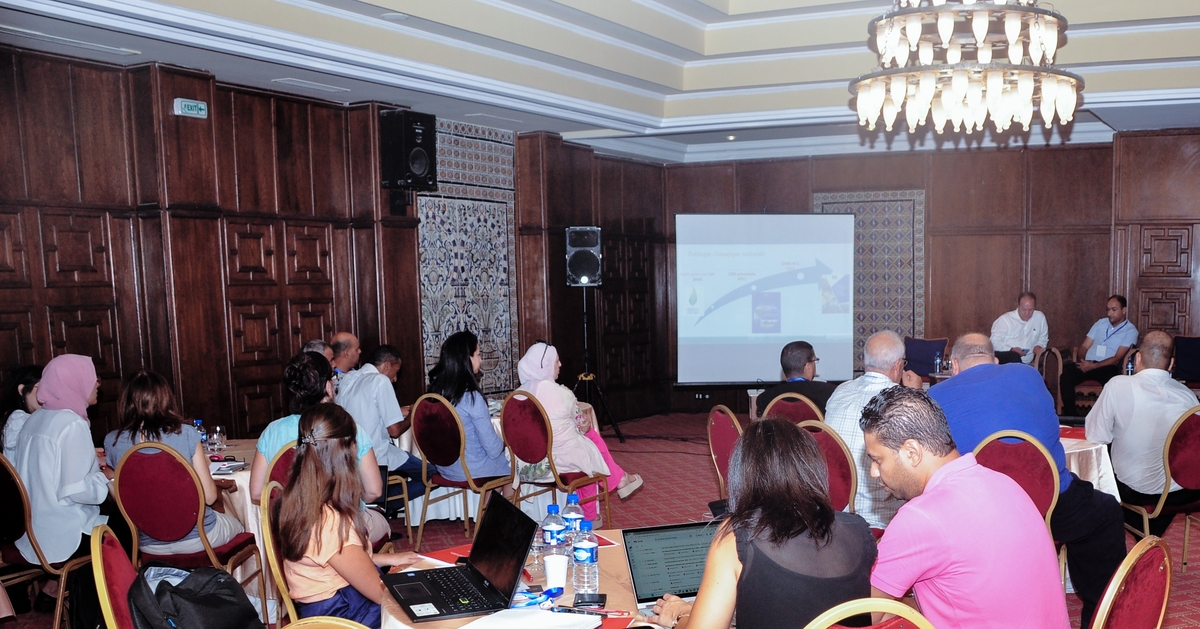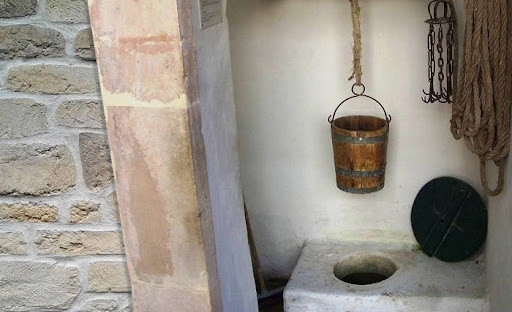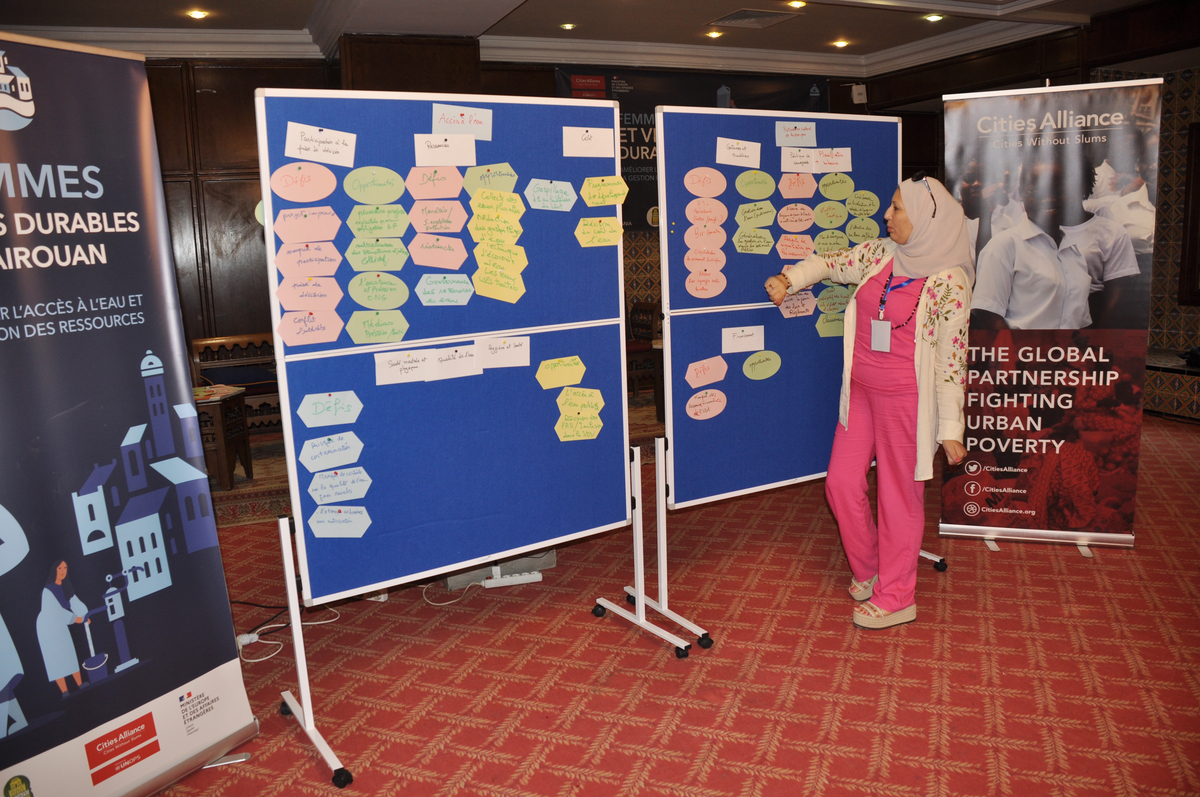With climate change increasingly threatening the world’s water resources, new approaches to water management are needed – especially ones that engage women, who play a key role in managing water in households but are often excluded from decision-making at higher levels.
We have long considered water to be a renewable resource, but unfortunately, we've exhausted our reserves without thinking about the future.
Chedli Jhinaoui, Kairouan Governorate
Cities Alliance's Women and Sustainable Cities initiative is responding to this need by transforming water and climate governance across the Middle East and North Africa (MENA) region, specifically in Kairouan, Tunisia; Figuig, Morocco; and Sebkha, Mauritania. Implemented in collaboration with municipalities and local civil society, the initiative is funded by the French Ministry for Europe and Foreign Affairs.
This two-year participatory initiative aims to provide insights into the challenges faced by urban women in managing water and guidance on achieving a more inclusive, gender-sensitive approach to drought and water management. Additionally, it seeks to enhance the resilience of women, communities, and local governments in the face of climate change-induced risks.
Stakeholder workshop in Kairouan
In Kairouan, the participatory process began with an inaugural stakeholder engagement workshop on 19 September 2023. Representatives from local, regional, and national government, water sector experts, and civil society gathered to discuss strengthening women's roles in municipal water management and climate governance.
This initiative is of great relevance to us, as a local authority, and to the people of Kairouan, especially in the current climatic conditions.
Mohamed Kalii, Secretary General Municipality of Kairouan

Participants discussed four major themes:
- Inclusive water governance
The workshop highlighted the absence of women in leadership roles due to political instability in the region. The lack of a well-defined strategy for women's access to quality water, combined with poor water governance practices, was addressed. Proposals included promoting women's skills in water management, adopting bottom-up governance approaches, and utilizing new technologies for sustainable water management.
We need to promote water resilience policies based on nature-based solutions that also address gender inequalities.
Afef Ayed, Architecte and advisor Ministry of Environment
- Access to and quality of water
Participants discussed the significant hurdles faced by the community, especially women, in accessing quality water. Threats such as overexploitation, pollution, and waste were identified. Opportunities to improve this area included innovative techniques for rainwater harvesting and wastewater treatment.
- Water and public space
The workshop emphasized the importance of easily accessible, green, and resilient public spaces with water. Existing open spaces in Kairouan were deemed unwelcoming to women, requiring a vision for the city that focuses on gender-equitable, water-focused public spaces. Proposals to enhance the city's attractiveness included better accessibility to the Aghalibides and Bir Barrouta basins, along with a tourist circuit highlighting historical water sources and investments in heritage sites and monuments.
- Traditional water conservation techniques and heritage
Traditional water conservation systems (foskia and majel) in Kairouan have been neglected. Participants proposed tapping into the city's rich cultural heritage to enhance sustainable water management, with recommendations emphasizing the need for restoration guided by women's insights. While these traditional systems have fallen into disrepair, Kairouan's cultural heritage presents an opportunity. Reintegrating water management into public space design can showcase the city's water resources and attract tourists.
Participatory initiatives involving civil society, administration, and citizens could attract donors. While full restoration poses challenges, incremental improvements through renovation can make these areas more women-friendly.

Recommendations and next steps
The workshop made clear that participants aspire to see a Kairouan that values the role of women in shaping the city’s water resources, public spaces, and cultural heritage. They identified various action items as starting points for the city, including :
- Establish water-friendly public amenities, including taps, fountains, and communal cisterns, integrating water into daily urban life to empower women with enhanced access.
- Install water collection basins to facilitate the irrigation of green spaces accessible by women.
- Revitalise historical landmarks important to water treatment and management, beginning with restoring the Aghlabide and Bir Barrouta basins.
- Create gender-responsive public spaces with leisure options, child-friendly attractions, social meeting places, and enhanced security, promoting sustainable water management.
The initiative's creative approach has the potential to improve the living conditions of many habitants of Kairouan.
Lotfi Laabidi, Regional Representative Ministry of Environment
The next steps involve direct engagement with Kairouan's women through workshops, community mapping, and surveys for a comprehensive assessment. The information collected will be used to produce a comprehensive assessment of women’s specific needs, potential risks, skills, and knowledge in governing water scarcity in Kairouan. These efforts will be carried out in close collaboration with a local NGO, Lam Echaml, further strengthening the project's commitment to inclusivity and community-driven solutions.






